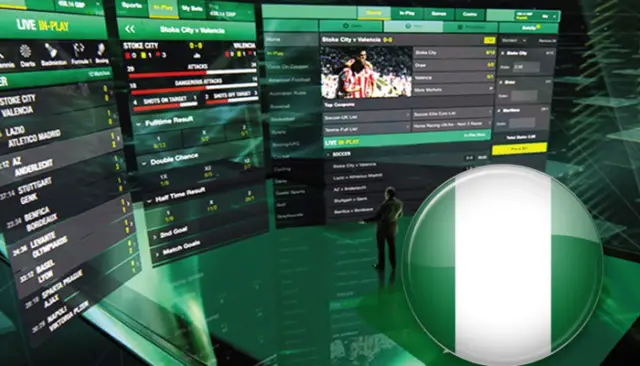In Nigeria, the sectors of sports betting, online gaming, and lotteries are experiencing rapid growth, attracting millions of participants daily. Yet, this seemingly lucrative landscape masks a grim reality: a growing number of individuals grappling with addiction, facing financial difficulties, and suffering from mental health issues as a consequence of their gambling habits.
According to a report published in 2020, about 60 million Nigerians between the ages of 18 and 40 are actively involved in sports betting, spending nearly N2 billion daily. Nigeria also has the highest average monthly spending on betting in Africa and is the second highest country in terms of gambling participation after Kenya.
One of the factors fueling the gambling craze is the exposure to famous personalities who actively endorse and promote various betting platforms. Many famous Nigerian personalities ranging from soccer legends like Austin Okocha and Kanu Nwankwo to comedians like Shaggy and former Big Brother Naija reality show contestants like Tobi Bakre have become official spokespersons for betting companies and mobile apps like betting.com, parimatch-app.net and sportybet.com.
These renowned figures leverage their fame, charisma, and allure to inspire their followers to gamble. They frequently post betting odds, advice, and their own gambling triumphs on their social media platforms, fostering a deceptive perception that gambling is straightforward, enjoyable, and profitable. This approach often obscures the potential risks and downsides of gambling, such as losses and addiction, portraying it instead as an enticing and rewarding activity.
Experts have raised concerns about the impact of gambling advertising, particularly on young and high-risk groups. Research from the Australian Gambling Research Centre has shown that exposure to gambling advertisements can encourage riskier betting behavior and increase the likelihood of experiencing gambling-related harm. Additionally, a study by IIM Ronak indicated that celebrity endorsements of online gambling applications significantly heighten the inclination among young people to engage in gambling. These findings highlight the influential role of advertising and celebrity endorsements in shaping gambling attitudes and behaviors, especially among vulnerable populations.
Related: Mobile Gambling Experience In South Africa: A Game-Changer For Casino Enthusiasts
Many Nigerians caught in gambling addiction recount stories of loss, unhappiness and despair. Kingsley Uzoma, a gambling addicted man who has lost large sums of money and even sold his properties to continue gambling, says he regrets learning about gambling in the first place. In his opinion, he continues to gamble because he needs money to solve his problems, but often loses much more than he wins. He also mentioned that he has lost the trust of his family, friends, and coworkers who believe that he always makes bad financial decisions.
Some experts have suggested that gambling should be banned in Nigeria to help millions of Nigerians get rid of this addiction. Kalu Aja, a finance expert, described gambling as a “malignant tumor that causes addiction.” However, others argue that banning gambling is not an effective solution as it will lead to an illegal market that will not protect players. They call for stricter regulation and taxation of the gambling industry as well as addressing the root causes of gambling such as poverty, unemployment and lack of prospects.
Despite the risks and challenges associated with gambling, some Nigerians are finding positive ways to combat addiction and recover from losses. A holistic approach is important, and these people are taking it. They visit communities to protect themselves from the damaging effects of gambling addiction, find new hobbies and ways to combat the addiction. In addition, they look for income options that bring them satisfaction. They also use their gambling experiences to educate and warn others about the risks of gambling and the importance of responsible gambling.
